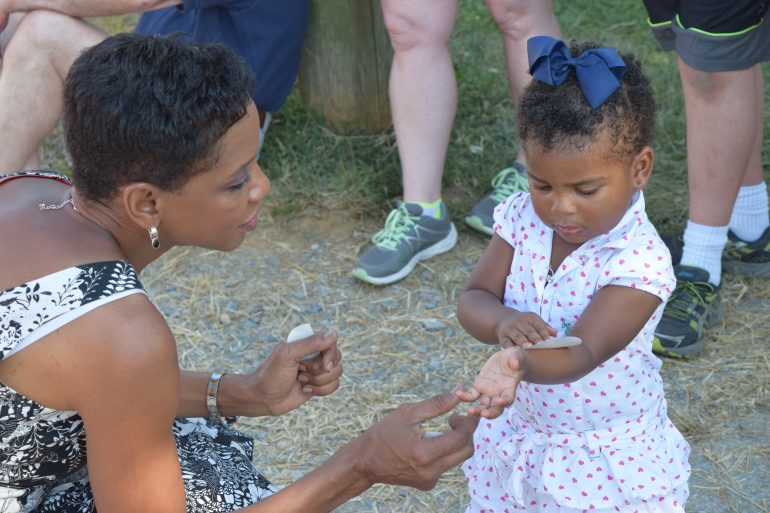
LANDOVER — As a young single mother, Donna Edwards once collapsed in a grocery store and had to be taken to the emergency room.
Because she was raising her son with just a single source of income, Edwards did not have health insurance. The medical bills from this incident, combined with her burdensome student loan payments, put her in such a deep financial hole that she almost lost her home.
Edwards told this story in 2009 on the floor of the House of Representatives as a freshman congresswoman casting her vote for the Affordable Care Act.
“If I could have gotten some health care and antibiotics, I would not have ended up in the emergency room, so it shaped the way I thought about what my responsibility was to make sure we could get as strong as possible a bill out of the House,” Edwards told Capital News Service during an interview in her Landover campaign office recently.
Edwards, 57, cited health care reform as a main reason she first decided to run for Congress in 2006. She lost the Democratic primary that year, but came back in 2008, defeating incumbent Rep. Al Wynn in the primary and cruising to an easy general election victory in the heavily-Democratic 4th Congressional District. The district covers parts of Prince George’s and Anne Arundel Counties.
“Her story resonates with a lot of folks here in Prince George’s County, we have 150,000 residents that don’t have health insurance,” said Del. Darryl Barnes of Prince George’s County, who has endorsed Edwards in her bid for the U.S. Senate.
Her 2008 election made history as Edwards became the first African-American woman to represent Maryland in Congress.
Now she is aiming to fill the seat of another trailblazer, the longest-serving woman in the U.S. Senate, Barbara Mikulski. If she wins, Edwards would be the only African-American woman in the Senate, and just the second ever — Illinois Democratic Sen. Carol Moseley Braun left the body in 1999.
This would be familiar territory for Edwards. The North Carolina native was one of six black women in her graduating class at Wake Forest University.
Edwards said she feels proud when she speaks to young African-American girls, who tell her they are able to see themselves differently when they see someone who looks like them holding a seat of power in Washington.
But it is not just her race and gender that set her apart in the halls of Congress. Her experience as a single mother struggling to pay the bills gives Edwards a unique perspective that she says shapes the way she thinks about policymaking.
“She’s been through these same kind of struggles, a single mother trying to raise her son and get ahead financially, that much of America is going through,” said Steve Cobble, political director for Progressive Democrats of America, an advocacy group that has endorsed Edwards. “That would seem to be an important thing that helps her understand how real people live and I’m afraid a big chunk of Congress comes without a clue.”
Cobble worked with Edwards when she was the executive director of the campaign finance reform group Center for a New Democracy and has known her for 25 years.
Before she got into politics, Edwards obtained a law degree from the University of New Hampshire and founded the National Network to End Domestic Violence, a coalition of advocacy groups for battered women. She helped pass the Violence Against Women Act in 1994 and then fought to reauthorize the law as a member of Congress in 2013.
As chairwoman of the Democratic Women’s Caucus in the House, Edwards changed the conversation about equal pay to include emphasis on the fact that African-American women make just 64 cents for every dollar men make; for Latina women that number is 49 cents for every dollar men make.
“It’s important to have the voice of a woman, and particularly my voice as a black woman, at the seat of power in the United States Senate because I have the ability to not just talk about those things from the 30,000-foot level, but talk about it on the ground because I have experienced it,” Edwards said.
On the campaign trail, Edwards talks about how in college she relied on Planned Parenthood for medical check ups, making the current debate and heated rhetoric over that organization personal for her.
“When I look at the role that Planned Parenthood plays in so many lives, both in mine but certainly in other women’s lives, I think how dare anyone think about taking away women’s health care choices and an opportunity for a quality health care?” Edwards said.
Her passion about women’s issues has been a central theme of her campaign, which looks to be a head-to-head with Rep. Chris Van Hollen of Montgomery County in April’s Democratic primary (Rep. Elijah Cummings of Baltimore has not ruled out a run). Van Hollen has a substantial fundraising advantage, out-raising Edwards by more than $3 million.
Van Hollen’s campaign has criticized Edwards for accepting a large portion of her money from outside of Maryland.
A Capital News Service analysis of Federal Election Commission records found that 47 percent of Van Hollen’s individual fundraising through September came from within Maryland, while 14 percent of Edwards’ fundraising came from donors in her home state.
In July Van Hollen called for both candidates to take a pledge to keep outside money out of the race. Edwards defended her fundraising, saying she doesn’t want to silence progressive groups such as Emily’s List, which aims to elect pro-choice women to Congress. The organization recently pledged to give $1 million to support Edwards’ campaign.
“I am proud to have the support,” Edwards said. “Emily’s list was first a supporter of Barbara Mikulski and propelled her into the Senate and they are helping me out in this campaign as well.”


You must be logged in to post a comment.